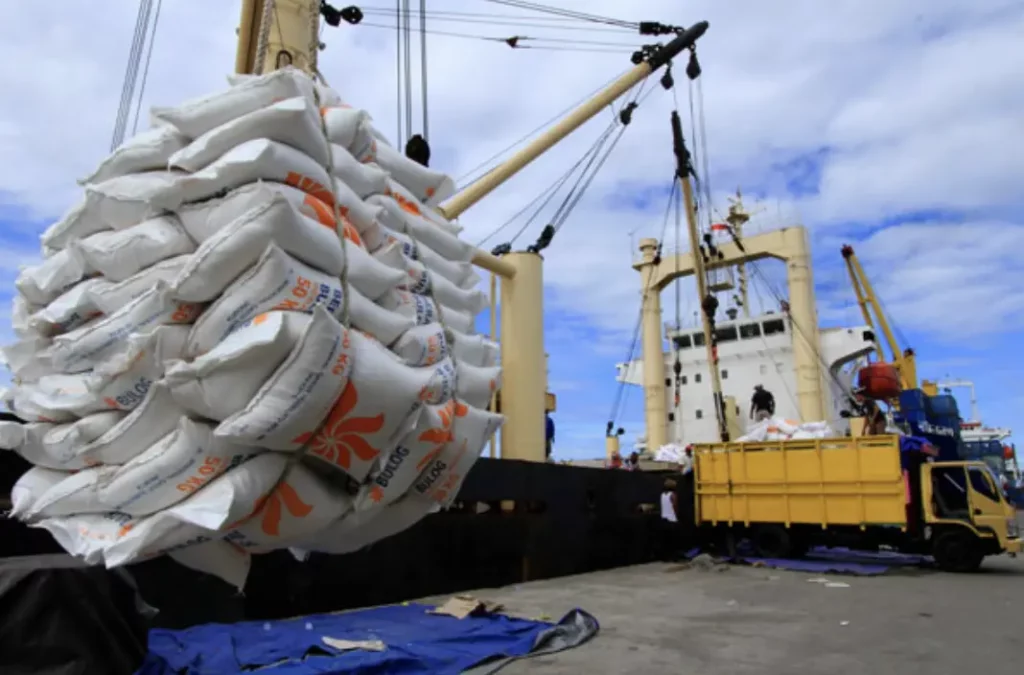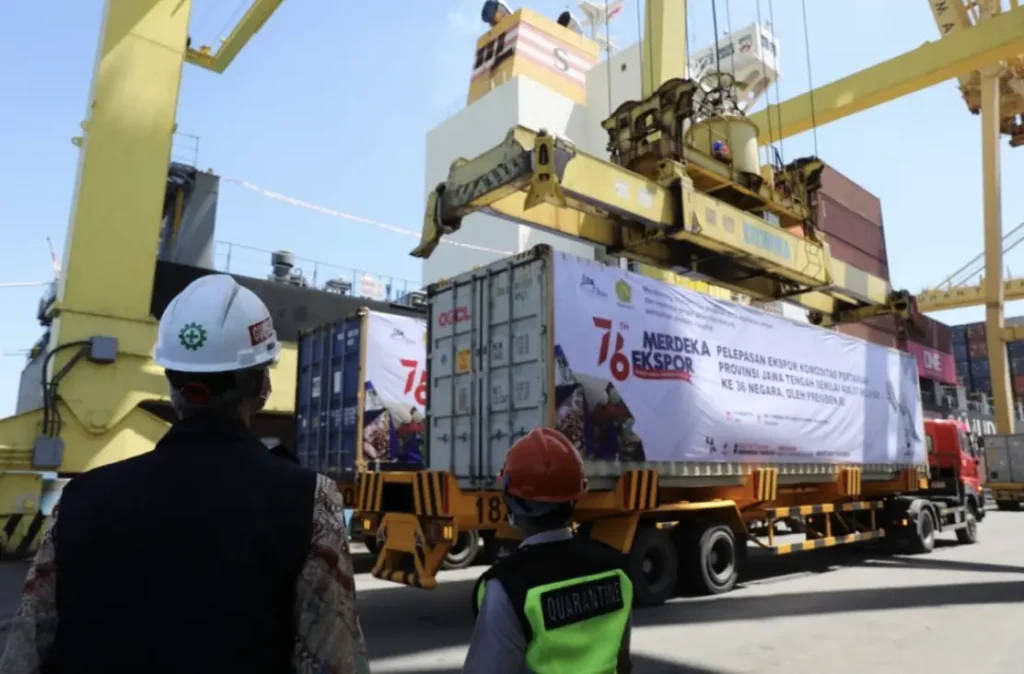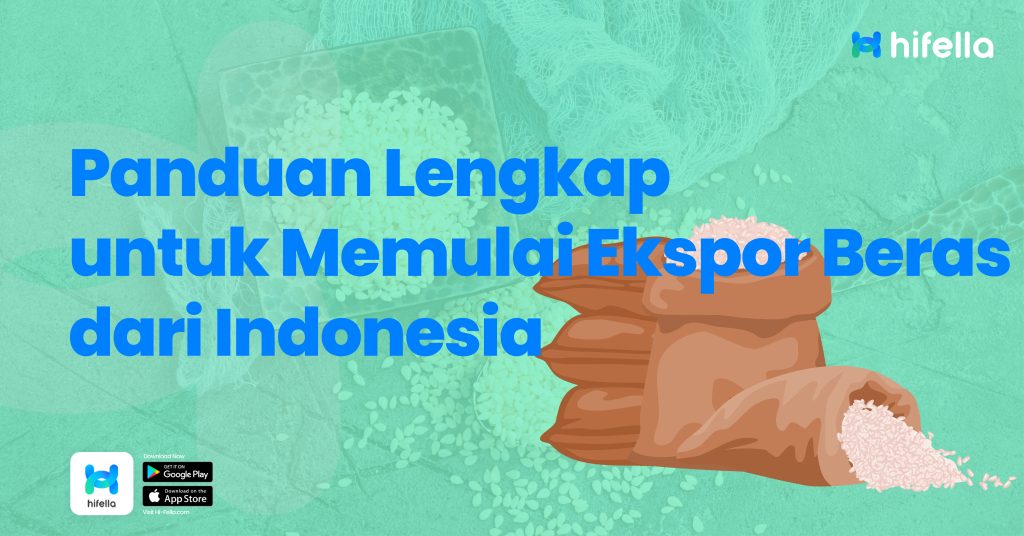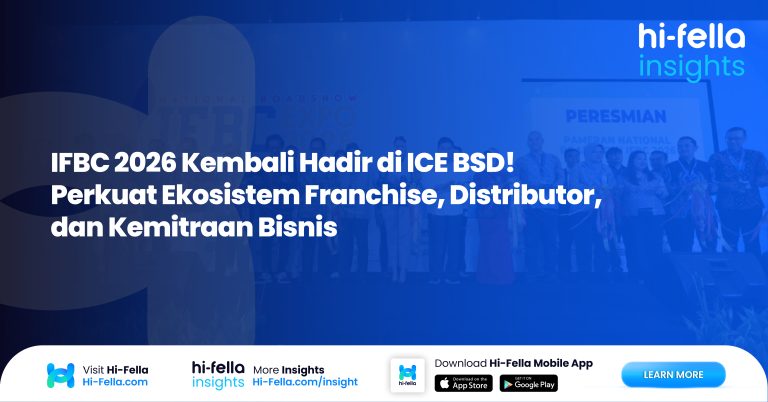Berbisnis ekspor beras dari Indonesia ternyata memiliki potensi yang cukup menguntungkan. Indonesia, sebagai salah satu produsen beras terbesar di dunia, memiliki potensi besar untuk memenuhi permintaan pasar internasional yang terus berkembang.
Namun, untuk berhasil dalam bisnis ekspor beras, dibutuhkan pemahaman yang mendalam tentang potensi pasar, persiapan yang matang, dan strategi pemasaran yang efektif.
Dalam panduan ini, kami akan membahas secara lengkap apa saja langkah-langkah untuk memulai dan menjalankan bisnis ekspor beras dari Indonesia, mulai dari potensi pasar hingga strategi pemasaran yang efektif.
Potensi dan Peluang Pasar Ekspor Beras

Sumber: Law Justice
Indonesia memiliki potensi besar dalam ekspor beras karena adanya keberagaman jenis dan kualitas yang cukup baik.
Hal ini membuat peluang pasar ekspor beras semakin terbuka luas, terutama di negara-negara Asia Tenggara dan Timur Tengah yang membutuhkan pasokan beras berkualitas tinggi.
1. Negara dengan Permintaan Beras yang Tinggi
Indonesia memiliki peluang ekspor beras yang besar ke negara-negara Asia Tenggara seperti Malaysia, Filipina, dan Vietnam, yang merupakan konsumen beras terbesar di dunia. Selain itu, pasar Timur Tengah juga menjanjikan dengan permintaan beras yang terus meningkat.
2. Kualitas Beras
Beras Indonesia dikenal memiliki kualitas yang baik, terutama beras premium seperti beras basmati dan beras aromatik. Ini memberikan keunggulan kompetitif dalam pasar internasional yang menghargai kualitas tinggi.
3. Kebutuhan Pasar
Pasar internasional semakin memperhatikan keamanan pangan dan keberlanjutan. Sebagai produsen beras organik dan berkelanjutan, Indonesia memiliki potensi untuk memenuhi kebutuhan pasar yang semakin meningkat akan produk-produk berkelanjutan.
Peluang Pasar Ekspor Beras Indonesia

Sumber: Aspek.id
Indonesia memiliki potensi besar dalam ekspor beras dengan beragam jenis dan kualitas sehingga peluang pasar ekspor beras semakin terbuka luas berikut alasannya:
1. Diversifikasi Produk
Selain beras putih konvensional, Indonesia dapat memperluas pasar ekspor dengan mengembangkan produk beras olahan seperti beras merah, beras hitam, atau beras organik. Pasar internasional semakin tertarik pada produk-produk beragam ini.
2. Inovasi Produk
Inovasi dalam pengolahan dan kemasan beras dapat meningkatkan daya saing produk Indonesia di pasar internasional. Misalnya, pengembangan beras instan atau kemasan yang ramah lingkungan dapat menarik minat pasar yang lebih luas.
3. Pengembangan Pasar Baru
Selain pasar tradisional seperti Asia Tenggara dan Timur Tengah, Indonesia juga dapat mengembangkan pasar ekspor baru di negara-negara Afrika atau Amerika Latin yang memiliki potensi konsumen yang besar.
Dengan memanfaatkan potensi dan peluang pasar ekspor beras, Indonesia dapat menjadi pemain utama dalam perdagangan beras global.
Dukungan pemerintah, inovasi produk, dan kerja sama antar pemangku kepentingan akan menjadi kunci keberhasilan dalam memasuki dan memperluas pasar ekspor beras.
Persiapan dan Kualitas Beras untuk Ekspor
Persiapan yang matang dalam hal kualitas beras dan persyaratan ekspor sangat penting untuk memastikan kesuksesan dalam bisnis ekspor beras. Berikut adalah langkah-langkah yang perlu dilakukan:
1. Pemilihan Varietas dan Kualitas Beras
Pilih varietas beras yang sesuai dengan kebutuhan pasar ekspor. Pastikan beras memiliki kualitas yang baik dan memenuhi standar internasional seperti ISO 22000 untuk keamanan pangan dan ISO 9001 untuk quality management.
2. Pengolahan dan Penyimpanan
Proses pengolahan beras harus dilakukan dengan hati-hati untuk memastikan kualitasnya tetap terjaga. Penyimpanan beras juga harus dilakukan dalam kondisi yang tepat agar tidak mengalami kerusakan.
3. Sertifikasi dan Dokumen
Pastikan beras yang akan diekspor memiliki sertifikasi yang diperlukan seperti Sertifikat Fitosanitasi dan Sertifikat Kesehatan dari otoritas yang berwenang.
Dokumen ekspor seperti invoice, packing list, dan sertifikat asal juga harus disiapkan dengan lengkap dan benar.
4. Kemasan
Kemasan beras juga harus sesuai dengan standar internasional dan kebutuhan pasar. Gunakan kemasan yang menarik dan aman untuk memastikan beras tetap dalam kondisi baik selama pengiriman.
5. Pemilihan Distributor dan Agen Ekspor
Pilih distributor atau agen ekspor yang memiliki reputasi baik dan pengalaman dalam bisnis ekspor beras. Mereka dapat membantu dalam menangani proses ekspor secara efisien dan memastikan beras mencapai pasar tujuan dengan baik.
6. Pemenuhan Standar dan Regulasi
Pastikan beras memenuhi semua standar dan regulasi ekspor yang berlaku di negara tujuan. Hal ini termasuk standar kualitas, keamanan pangan, dan hukum perdagangan internasional.
Prosedur dan Dokumen untuk Ekspor Beras
Prosedur ekspor beras melibatkan berbagai dokumen, mulai dari izin ekspor, sertifikat kesehatan, hingga dokumen pengiriman.
Pastikan untuk memahami dan melengkapi semua dokumen yang diperlukan untuk memperlancar proses ekspor.
Strategi Pemasaran Beras di Pasar Internasional
Strategi pemasaran merupakan salah satu peranan penting dalam kesuksesan ekspor beras. Berikut adalah beberapa strategi pemasaran yang dapat Anda gunakan untuk memperluas pasar ekspor:
1. Ciptakan Branding yang Kuat
Bangun citra merek yang kuat untuk beras Anda dengan fokus pada kualitas, keamanan, dan juga keberlanjutan.
Branding yang kuat dapat membantu membedakan produk Anda dari pesaing dan meningkatkan daya tarik di pasar internasional.
2. Promosi Melalui Media Sosial
Gunakan media sosial untuk mempromosikan produk beras Anda kepada pasar internasional. Manfaatkan platform seperti Instagram, Facebook, dan Hi-Fella untuk berbagi informasi tentang produk, keunggulan, dan testimoni pelanggan.
3. Kerjasama dengan Distributor Lokal
Jalin kerjasama dengan distributor lokal di negara-negara tujuan ekspor untuk memperluas jangkauan pasar. Distributor lokal dapat membantu memasarkan produk Anda secara efektif di pasar lokal dan memperluas jejak bisnis Anda.
4. Partisipasi dalam Pameran dan Event Industri
Ikut serta dalam pameran dan event industri di negara tujuan ekspor untuk memperkenalkan produk Anda kepada pembeli potensial. Hal ini juga dapat menjadi kesempatan untuk menjalin hubungan bisnis baru dan memperluas jaringan.
Tantangan dan Solusi dalam Ekspor Beras
Tantangan dalam ekspor beras tidak dapat dihindari, namun dapat diatasi dengan strategi yang tepat. Berikut adalah beberapa tantangan yang mungkin dihadapi serta solusi untuk mengatasi nya:
1. Persaingan Pasar yang Ketat
Persaingan dalam pasar ekspor beras sangat ketat. Untuk mengatasi hal ini, fokuslah pada diferensiasi produk Anda, baik dari segi kualitas, harga, maupun nilai tambah lainnya.
2. Perubahan Kebijakan Perdagangan
Perubahan kebijakan perdagangan di negara-negara tujuan ekspor dapat mempengaruhi bisnis Anda. Untuk mengatasinya, selalu ikuti perkembangan kebijakan perdagangan dan siapkan strategi cadangan jika terjadi perubahan yang cukup signifikan.
3. Masalah Logistik
Masalah logistik seperti keterlambatan pengiriman atau kerusakan barang dapat menghambat bisnis ekspor Anda. Untuk mengatasi hal ini, pastikan untuk bekerja sama dengan penyedia logistik yang terpercaya dan memiliki pengalaman dalam mengirimkan barang ke luar negeri.
4. Risiko Mata Uang Asing
Perubahan nilai tukar mata uang dapat berdampak pada harga jual produk Anda di pasar internasional. Untuk mengurangi risiko ini, pertimbangkan untuk menggunakan kontrak berjangka mata uang atau lindung nilai lainnya.
Dengan strategi pemasaran yang tepat dan kemampuan untuk mengatasi tantangan yang ada, Anda dapat meningkatkan peluang sukses dalam bisnis ekspor beras.
Teruslah memperbaiki kualitas produk, memahami kebutuhan pasar, dan beradaptasi dengan perubahan pasar agar bisa lebih unggul dalam ekspor beras.
Temukan Buyer Global di Hi-Fella
Temukan pembeli potensial untuk ekspor beras di platform Hi-Fella, platform perdagangan internasional yang menyediakan akses ke pasar global untuk produk pertanian Indonesia.








